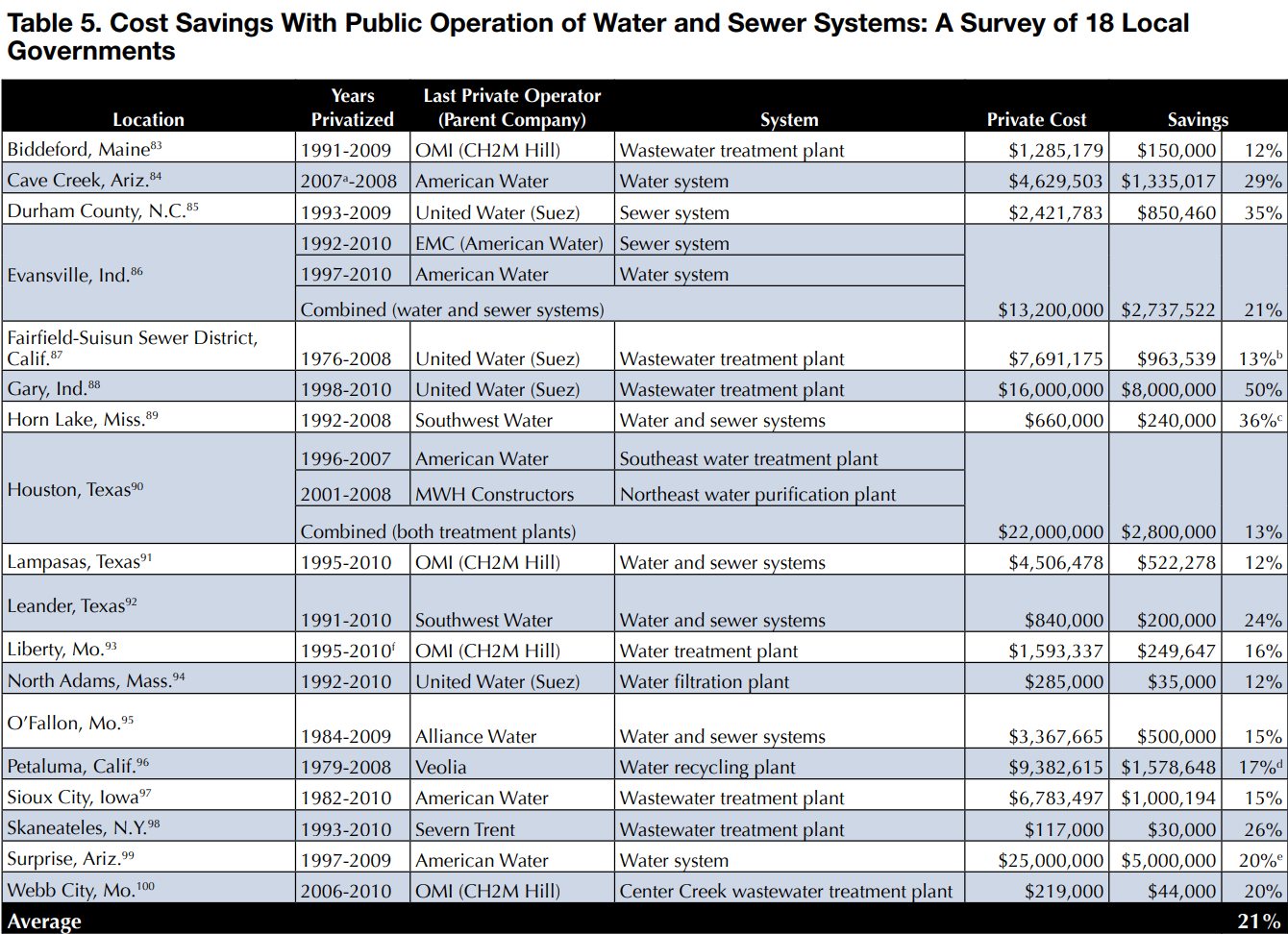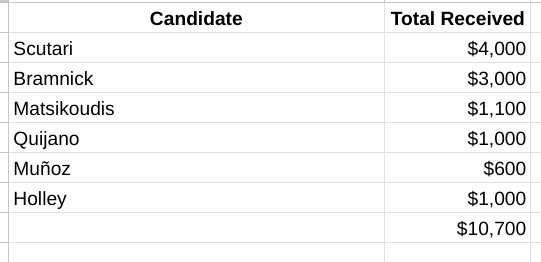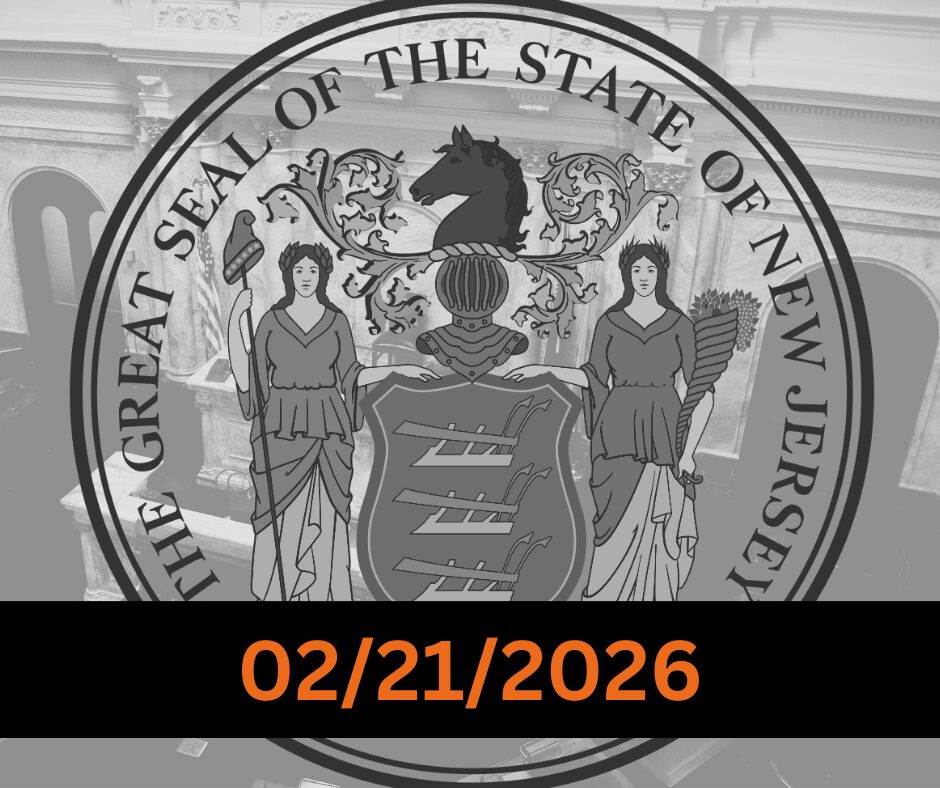Pay Attention, NJ.
Berkeley Heights political leadership stands to gain a great deal from the sale of our sewage plant:
- An influx of cash.
- The ability to pass off years of neglect—and the responsibility for raising rates—onto residents through a private entity.
- The ability to shift accountability for plant operations to another oversight body.
Despite relieving themselves of the responsibility of managing their respective sewer systems, none of the towns we reviewed reduced taxes after the sale.
In fact, every single town we obtained data on raised municipal taxes the year after the sale—and, where applicable, in the years that followed.
Residents also continued to pay their sewage fees, with no reductions, and rate caps typically expiring after just two years.

Source for Tax Data: DCA-NJ Individual Property Tax Reports
So the Municipality gets a nice payout yet little to none of that money seems to fall into the hands of the families who live in these communities, families who are stuck having to pay for the Municipality’s neglect of their sewage plants on top of a profit margin that was never there before.
The bonus?
A more removed oversight body residents need to deal with when issues arise.
The “Savings” Myth
Municipalities also use cost savings as a selling point to a public often hungry for privatization as a means of saving money.
An extensive review of the research by Food and Water Watch found quite the opposite.
“Public operation of water and sewer systems averaged 21 percent cheaper than private operation, according to a Food & Water Watch review of 18 local governments that ended contracts with private operators since 2007 (see table 5).
For Sioux City, O’Fallon, Petaluma and Fairfield-Suisun, the return to public operation came after more than two decades of private control.
Several cities found that public management can simultaneously cut costs and improve performance. Cave Creek, Ariz., reported in its 2009 financial report, “During the fiscal year the Town managed and operated its water system eliminating an operating contract with a private company and improving operations while reducing operating costs.”

Follow the Money
We should ask some hard questions about the influence water companies have when it comes to NJ Politics – from Pro Publica:
“On the riverfront next to the Norcross tower sits the new glass-and-steel headquarters of American Water, a giant public utility represented by Optimus Partners, a lobbying firm owned by Philip Norcross. The water company has paid Optimus $854,000 since 2012, records show.
The company won $164 million in tax breaks. CEO Susan Story told NJ.com last year that George Norcross encouraged the move to Camden. “And we’re here. Thank you, George,” she said. She declined an interview request.”
NJ American Water is also a likely contender for the Berkeley Heights plant.
According to NJ American Water’s Website, Union County Politicians received over $10,000 in campaign contributions from the company’s PAC between 2020 through 2024.

Berkeley Heights Democrats have strong ties to Scutari who showed up on George Devanney’s BOE Campaign Contributor list and who the mayor (Mr. Devanney’s wife) praised for promising $250,000 toward her turf field legacy project. We are certain that the $250,000 promised by Scutari will actually come from taxpayers.
Local Republicans have an equally comfortable relationship with Bramnick who couldn’t get into enough videos alongside former Councilman Varnerin during his unsuccessful bid for Mayor.
In total, NJ American Water gave $115,000 to individual candidates in NJ through their PAC, but it doesn’t stop there.
You can add another $292,000 in lobbying dollars, into NJ’s political theatre, through various associations during that same time period.
We will cover the mad rush by political machines to make it easier for townships to unload their facilities in another article – that part of the story will have some familiar names.
The Blame Game
Another cynical talking point making its way through the community is that this situation is actually the fault of Berkeley Heights families—because they didn’t want tax increases. That’s a curious argument, considering New Jersey families already pay some of the highest taxes in the country. Even if true, this would simply validate the position that the main reason municipal governments sell off their sewer and water facilities connects to political expediency.
Will the township ever hold itself accountable for the money spent on empty initiatives and pet projects, instead of using those funds to maintain critical infrastructure?
Additional Question Residents Should Ask before voting on the referendum to give our Sewage Plant Away to Private Interests
Will the referendum include clear, enforceable language requiring the Mayor and Council to reduce the budget and adjust tax rates—so that the money gained (and saved) from the sale actually goes back to working families, rather than more attorneys or PR firms?
Will the referendum include language that offsets any future sewer rate increases by requiring equivalent reductions in residents’ property taxes—so working families aren’t stuck paying twice?
Will the referendum codify the township’s obligation to intervene and advocate on behalf of residents who experience service or billing issues with the new private operator and require that the agreement with the operator include meaningful powers for the town to intervene?
This is a serious decision that involves jobs, potential environmental impact and long term economic consequences for Berkeley Heights, towns throughout NJ and the Country. Residents have a responsibility as citizens to move away from relying on hyper-local media outlets and consultants that show up at town council meetings to push municipal talking points.
The playbook being used in Berkeley Heights – consultants framed as “experts” throwing out numbers and hyper-local media publishing only one perspective (both rewarded with either access or money) is both familiar and until recently, effective. There is some evidence that residents in our community are starting to connect the dots – follow this closely in the event that this traveling show makes a stop in your community.
Residents have an ethical obligation to their communities to independently investigate the potential consequences of selling our water and sewer systems thoroughly before voting on this issue.
Screenshots of NJ American Water Contributions from their Site
Read More Articles on Water and Sewage Privatization
Subscribe to NJ21st For Free
Our Commitment to Ethical Journalism
|



